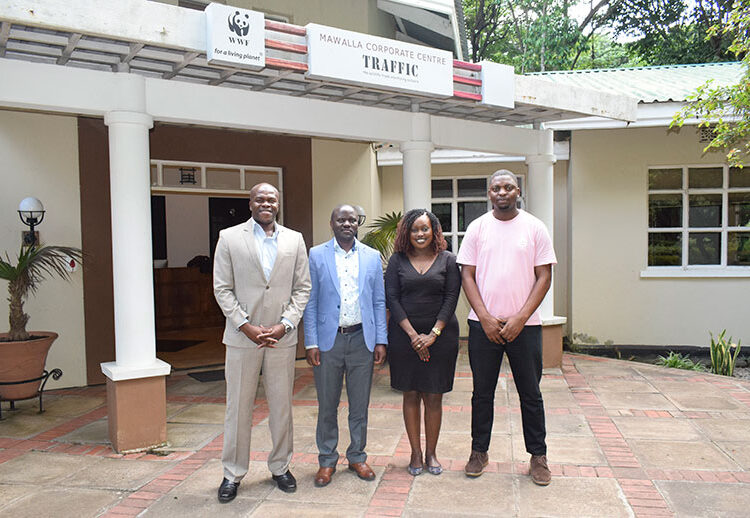The Federation of East African Freight Forwarders Associations (FEAFFA) has reached TRAFFIC in Arusha, a leading non-governmental organization working globally on trade in wild animals and plants in the context of both biodiversity conservation and sustainable development, seeking areas of collaboration to curb any illegal trade.
Customs Clearing Agents and Freight Forwarders play a key role in the movement of goods, and it is important for the two organizations to develop a working relationship to promote the conservation of wildlife, the two agencies said in a joint statement.
“One of the key areas of collaboration is the capacity building of Customs Clearing Agents and Freight Forwarders through training interventions,” Elias Baluku, the Acting Executive Director said after a meeting with TRAFFIC in Arusha.

This comes at a time when the 46th Session of the International Maritime Organization (IMO) Committee on The Facilitation of Maritime Trade (FAL) adopted the “Guidelines for the Suppression and Prevention of the Smuggling of Wildlife on Ships Engaged in International Maritime Traffic last year.
The Guidelines were proposed as output by Kenya in 2019 and were championed and lobbied for their adoption, bringing together member States’ Governments, UN Agencies, Intergovernmental Organizations (IGOs), and academia among other players to draft and agree on the terms of the guidelines.
The Guidelines were formally submitted to FAL 46 by Brazil, Colombia, Germany, Kenya, Tanzania, the Intergovernmental Standing Committee on Shipping (ISCOS), the International Chamber of Shipping (ICS), the Worldwide Fund for Nature (WWF), the International Fund for Animal Welfare (IFAW) and the International Organization of Airports and Seaports Police (INTERPORTPOLICE).
Formal efforts started in FAL44 led by the Republic of Kenya with a working group composed of the United Nations Development Programme (UNDP), WWF, and TRAFFIC.
“We are thrilled that the IMO Member States have made this commitment to tackling the illegal networks that exploit maritime supply chains to traffic wildlife. These new Guidelines, including the FAL Compendium, will provide a fundamental resource to aid governments and the private sector to take collaborative action against the illegal wildlife trade and help to conserve our global biodiversity,” Philippa Dyson, TRAFFIC’s coordinator of transport sector engagement said in an earlier statement.
Wildlife trafficking is a growing concern globally, threatening not only biodiversity but also ecosystems vital for climate change mitigation, domestic and international economies, and potentially human health, the statement noted.
Organized criminal groups are increasingly taking part in this illegal activity which is still considered “low risk – high reward”. Smugglers exploit the weaknesses in supply chains to illegally transport endangered species, including live animals, animal products, plants, and timber.
“With 90% of the world trade being seaborne and an estimated 72-90% of illicit wildlife volumes being trafficked through maritime transport, the sector holds a responsibility to engage against this transnational organized crime,” the statement said.
The Guidelines highlight measures and procedures already available to the private sector and government agencies to combat wildlife trafficking within the industry.
The Guidelines provide information on the nature and context of maritime smuggling of wildlife. It includes measures to prevent, detect and report wildlife trafficking within the maritime sector, with an emphasis on due diligence, responsibility-sharing, and cooperation between all stakeholders along the supply chains.
“These Guidelines present a game-changer in the fight against the illegal wildlife trade. Through dedicated and expert support from IMO member states and partners, government authorities and companies can implement greater safeguarding measures to protect their employees, business, and nature, critical to protecting the integrity of maritime supply chains from operational, economic, security, and zoonotic health risks,” Dr. Margaret Kinnaird, Global Wildlife Practice Leader of WWF said.
This article was published by the editorial team at FEAFFA. For any enquiries, contact us via Email: freightlogistics@feaffa.com Tel: +254733780240





